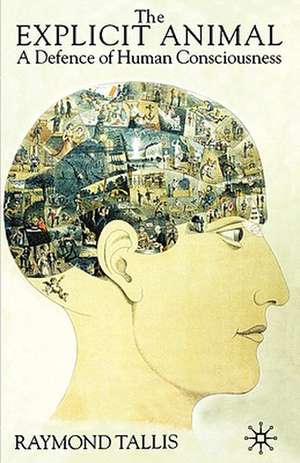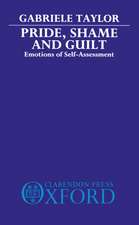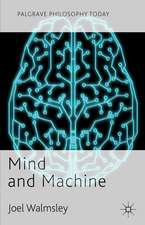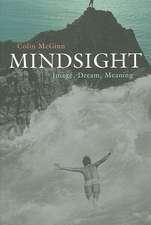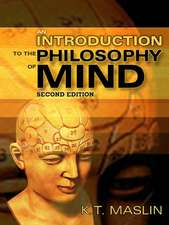The Explicit Animal: A Defence of Human Consciousness
Autor R. Tallisen Limba Engleză Paperback – 29 iul 1999
| Toate formatele și edițiile | Preț | Express |
|---|---|---|
| Paperback (2) | 357.43 lei 6-8 săpt. | |
| Palgrave Macmillan UK – 29 iul 1999 | 357.43 lei 6-8 săpt. | |
| Palgrave Macmillan UK – 29 iul 1999 | 395.08 lei 38-44 zile |
Preț: 357.43 lei
Nou
Puncte Express: 536
Preț estimativ în valută:
68.40€ • 74.27$ • 57.46£
68.40€ • 74.27$ • 57.46£
Carte tipărită la comandă
Livrare economică 23 aprilie-07 mai
Preluare comenzi: 021 569.72.76
Specificații
ISBN-13: 9780312224189
ISBN-10: 0312224184
Pagini: 297
Ilustrații: XVI, 313 p.
Dimensiuni: 140 x 216 x 22 mm
Greutate: 0.48 kg
Ediția:1999
Editura: Palgrave Macmillan UK
Colecția Palgrave Macmillan
Locul publicării:London, United Kingdom
ISBN-10: 0312224184
Pagini: 297
Ilustrații: XVI, 313 p.
Dimensiuni: 140 x 216 x 22 mm
Greutate: 0.48 kg
Ediția:1999
Editura: Palgrave Macmillan UK
Colecția Palgrave Macmillan
Locul publicării:London, United Kingdom
Cuprins
Acknowledgements Preface to the 1993 Reprint Overture Losing Consciousness Biologising Consciousness I: Evolutionary Theories Biologising Consciousness II: The Casual Theory of Perception Appendix: The Language of Neuromythology with Special Reference to 'Information' Computerising Consciousness Emptying Consciousness: Functionalism Man, the Explicit Animal Recovering Consciousness Notes and References Index
Recenzii
'There may be other professors of geriatric medecine who have chosen to write down their views on life, the universe and everything...Raymond Tallis is unusual in that he is philosophically well educated and alert; his books are genuine contributions to professional debate and must be assessed as such. It is, of course, acutely irritating that someone with a different professional competence should have read more widely, and more attentively, in one's own field than oneself; even more irritating that there are no obvious misreadings...It is to be hoped that Raymond Tallis finds time, amid his professorial and clinical duties, to continue the exploration.' - Professor Stephen Clark, Times Literary Supplement
From the reviews of Enemies of Hope:
'`Tallis....is a high achiever with a range of expertise that would leave Jonathan Miller gasping' - Walter Ellis, The Sunday Times
'As its title and length indicate, this is a Big Book. It is written, nevertheless, in a clear, accessible, unpretentious and often witty style. And as anyone familiar with Raymond Tallis's other similar works will know, it has important things to say....there is about his panoptic sweep an intrepidity, a candour and open-mindedness, a gameness for anything, a total lack of vanity or self-importance, and a generous hatred of cant, that are extremely engaging. Every page of Enemies of Hope is lit by its author's characteristic wisdom and luminous intelligence, and by flashes of novel, striking insight. That alone is as much as to say, read it.' - Robert Grant, The Times Literary Supplement
'Brilliantly argued and with a wide range of erudition' - Nicholas Kochan, The Financial Times
'There may be other professors of geriatric medicine who have chosen to write down their views on life, the universe and everything...Raymond Tallis is unusual in that he is philosophically well educated and alert; his books are genuine contributions to professional debate and must be assessed as such.' - Stephen R.L. Clark, Times Literary Supplement
From the reviews of Enemies of Hope:
'`Tallis....is a high achiever with a range of expertise that would leave Jonathan Miller gasping' - Walter Ellis, The Sunday Times
'As its title and length indicate, this is a Big Book. It is written, nevertheless, in a clear, accessible, unpretentious and often witty style. And as anyone familiar with Raymond Tallis's other similar works will know, it has important things to say....there is about his panoptic sweep an intrepidity, a candour and open-mindedness, a gameness for anything, a total lack of vanity or self-importance, and a generous hatred of cant, that are extremely engaging. Every page of Enemies of Hope is lit by its author's characteristic wisdom and luminous intelligence, and by flashes of novel, striking insight. That alone is as much as to say, read it.' - Robert Grant, The Times Literary Supplement
'Brilliantly argued and with a wide range of erudition' - Nicholas Kochan, The Financial Times
'There may be other professors of geriatric medicine who have chosen to write down their views on life, the universe and everything...Raymond Tallis is unusual in that he is philosophically well educated and alert; his books are genuine contributions to professional debate and must be assessed as such.' - Stephen R.L. Clark, Times Literary Supplement
Notă biografică
RAYMOND TALLIS was recently described in The Times Higher Educational Supplement as 'one of the most intriguing figures in the current intellectual scene'. Trained as a doctor at Oxford University and St. Thomas' Hospital, he has written extensively outside of medicine of the last 15 years. He has published short stories and poetry, and been recognized for his critiques of post-Saussurean thought, his reflections on art and science, and his discussions of the philosophy of mind. He was awarded an honorary degree of Doctor of Letters by the University of Hull in 1997 for his contributions to literary scholarship. Since 1987 he has been Professor of Geriatric Medicine at the University of Manchester and a consultant physician in Health Care of the elderly in Salford.
